Not sure about choosing a charger? Try our revamped Charger Finder!
Try our revamped Charger Finder!
- For Installations
- All our chargers come with a 1 year warranty
- Free Shipping
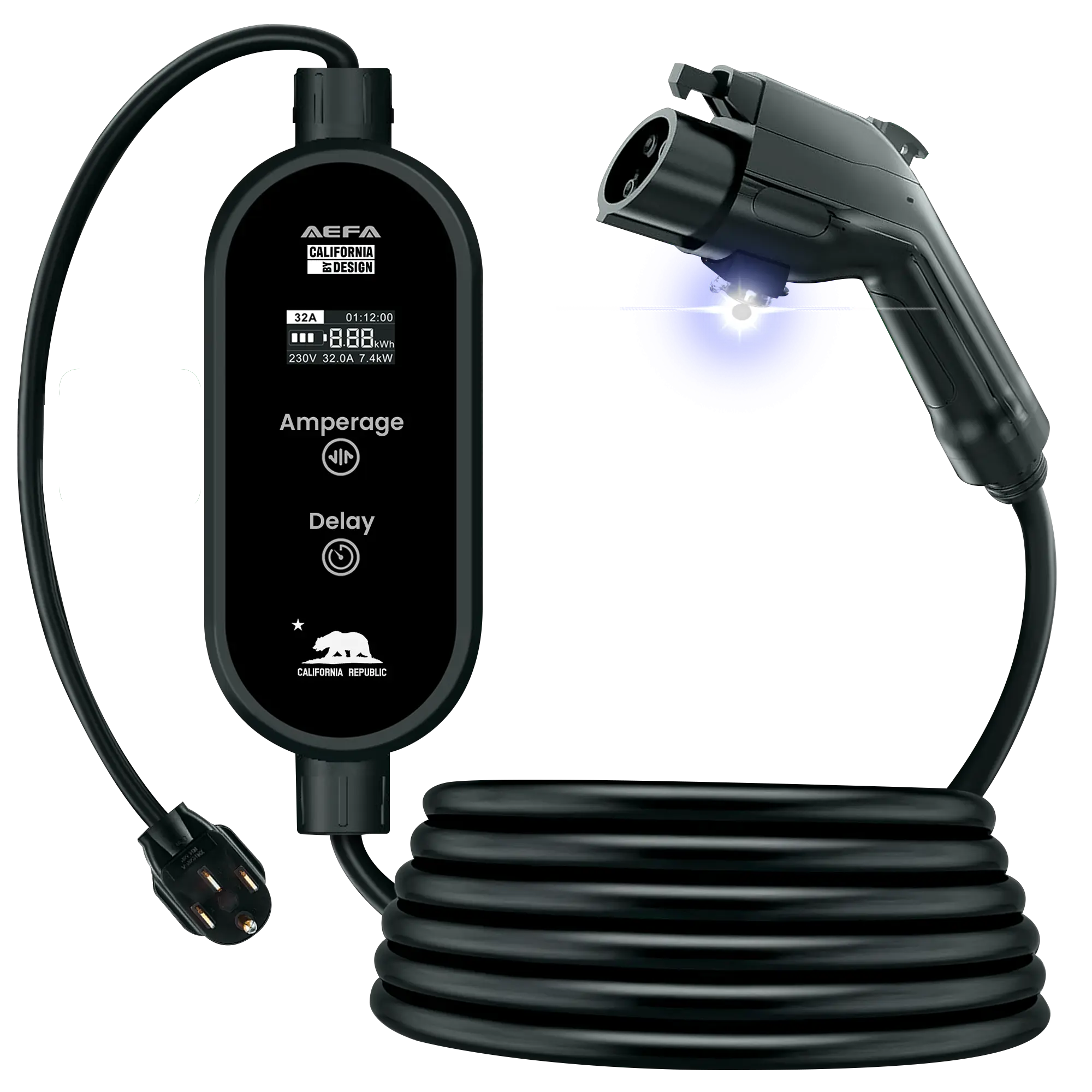

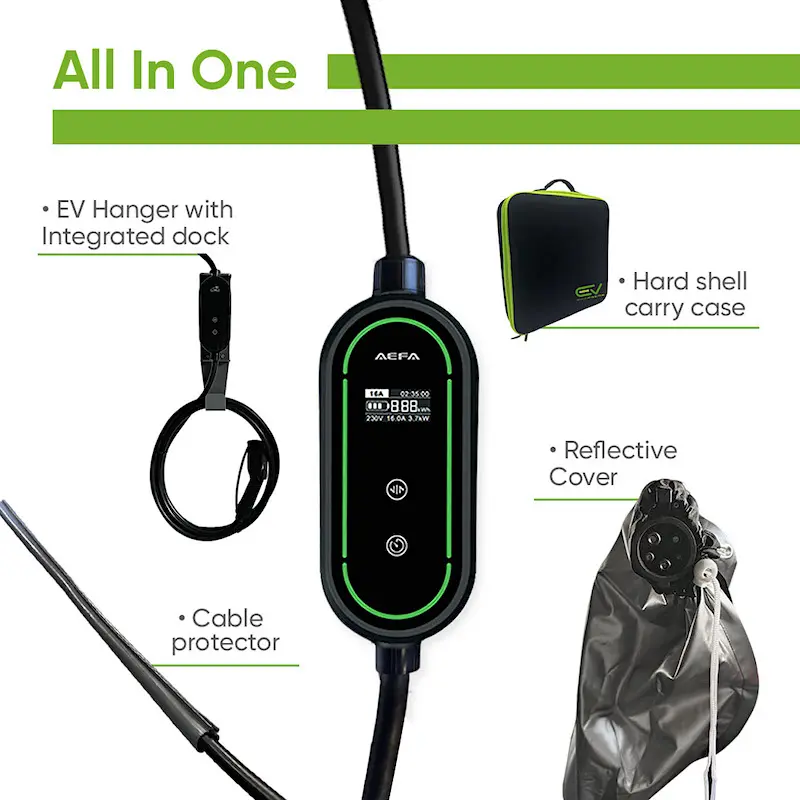
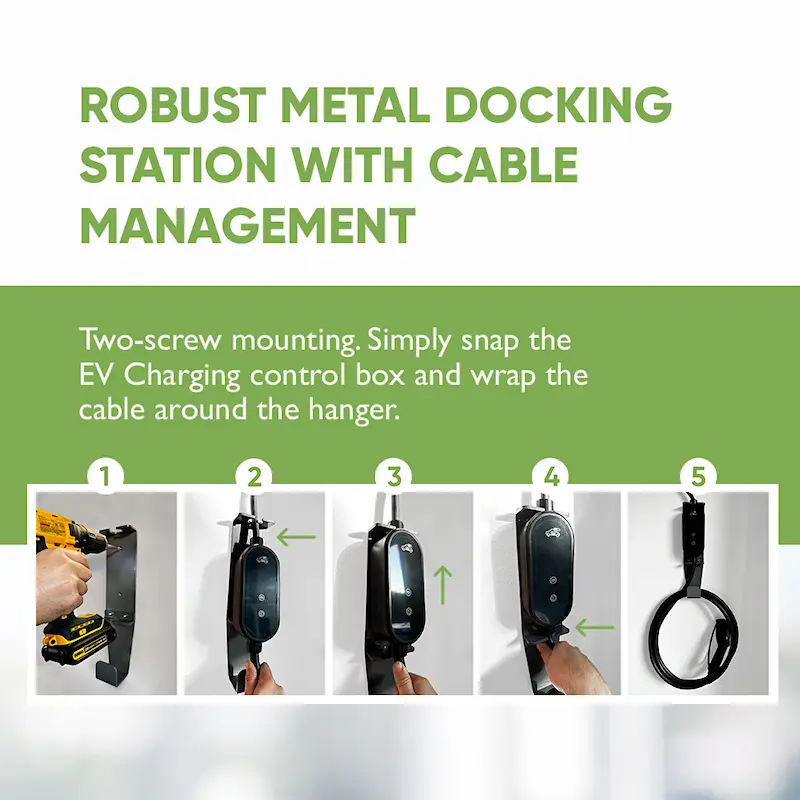
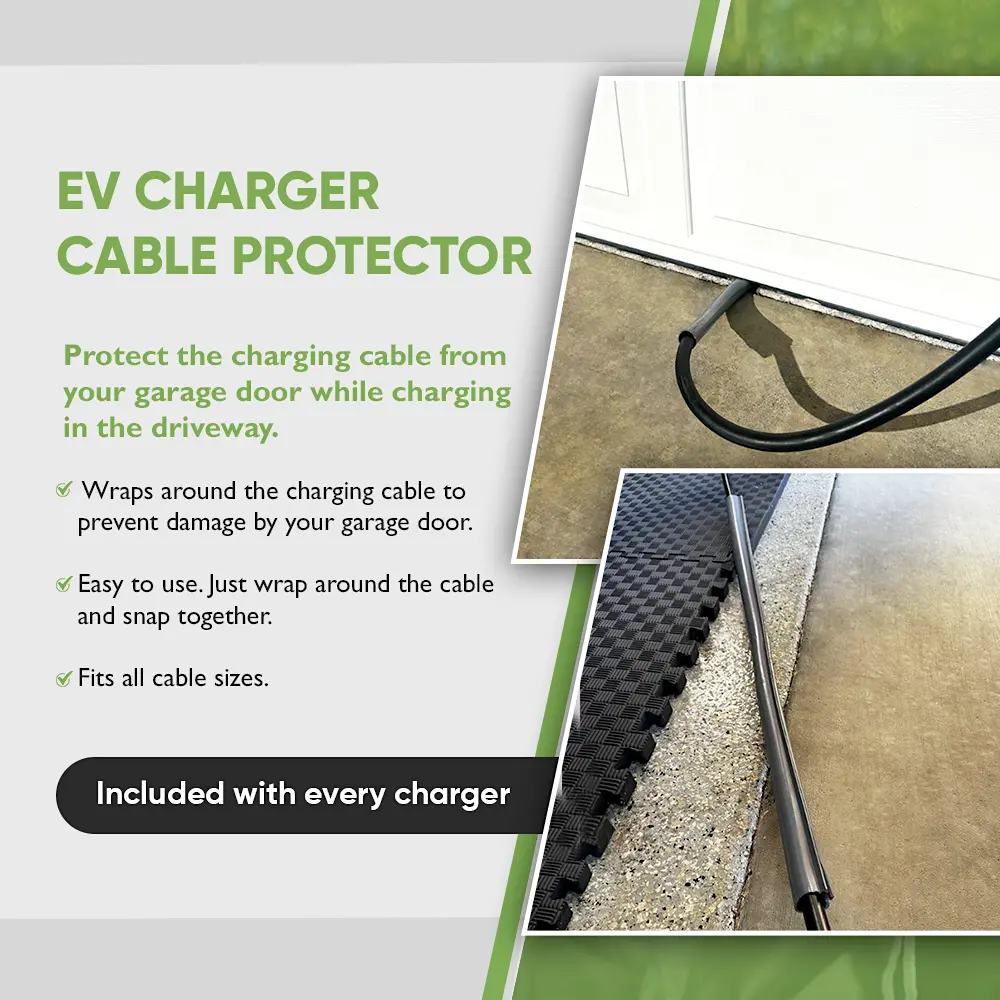
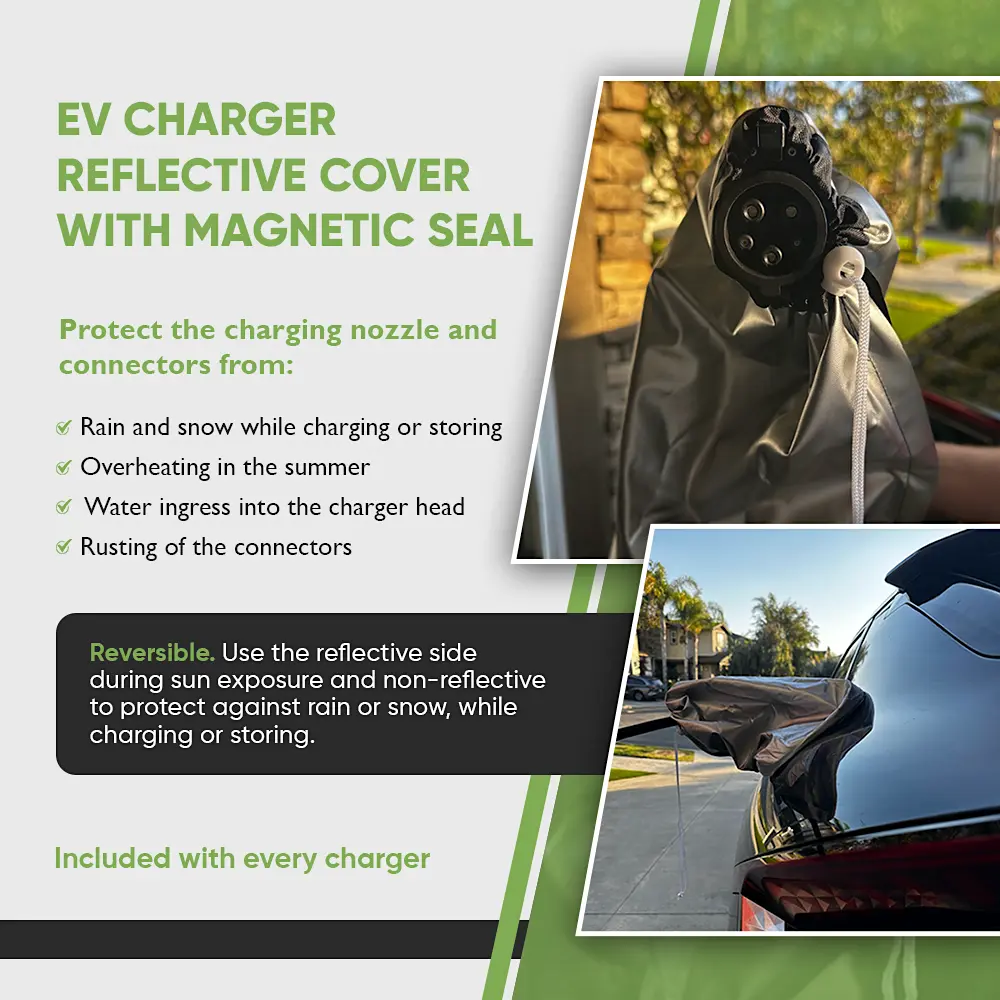
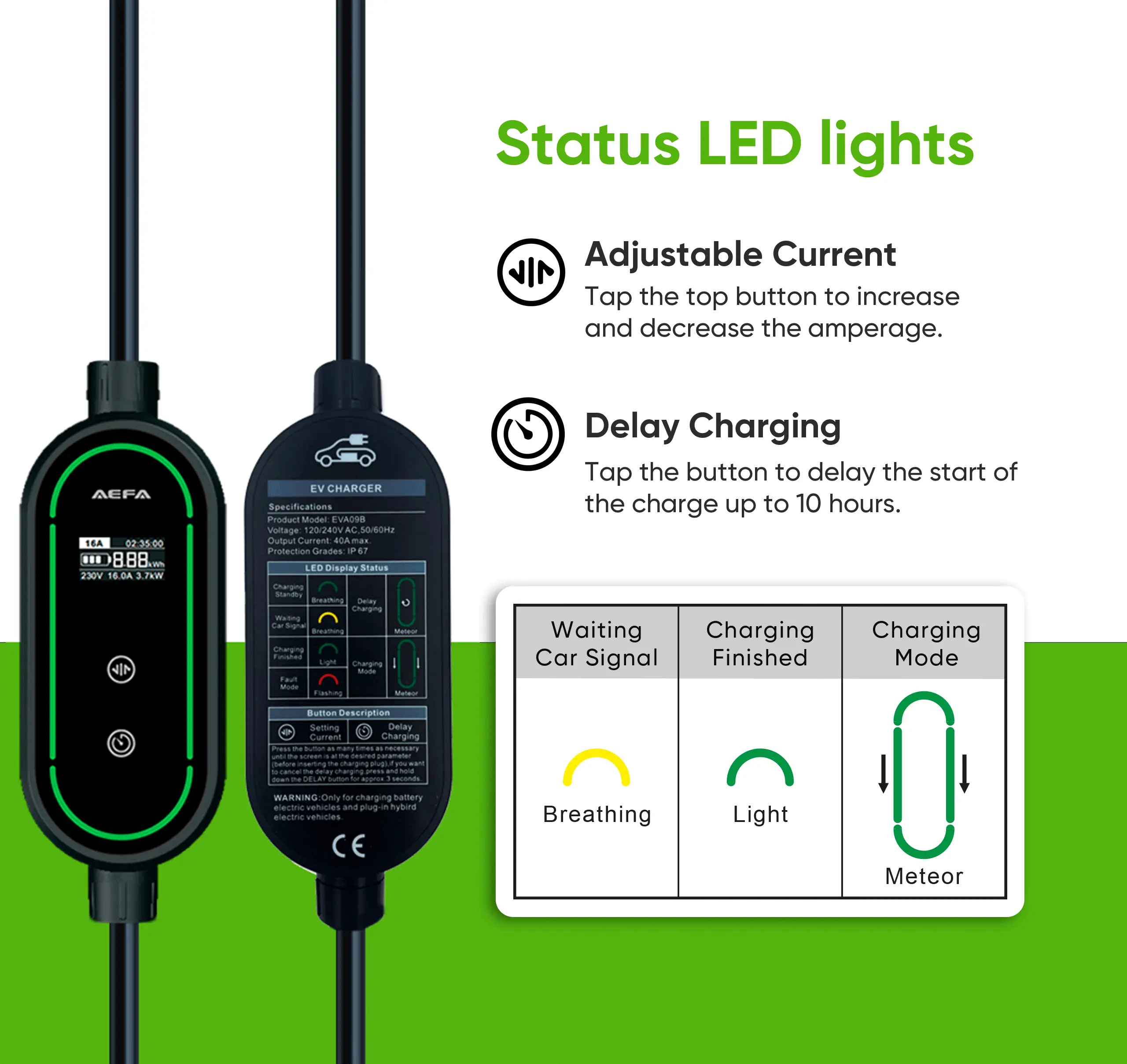
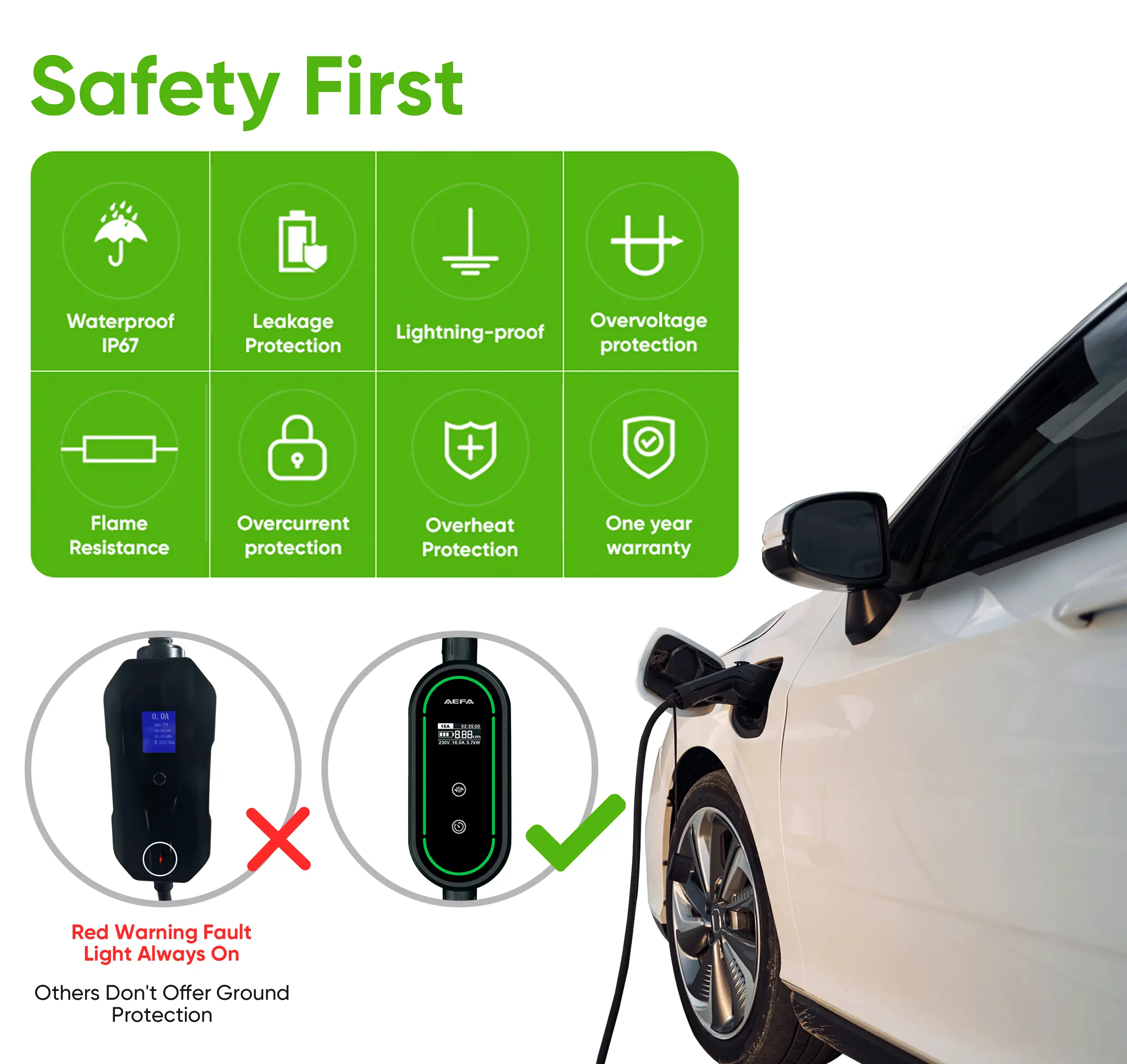
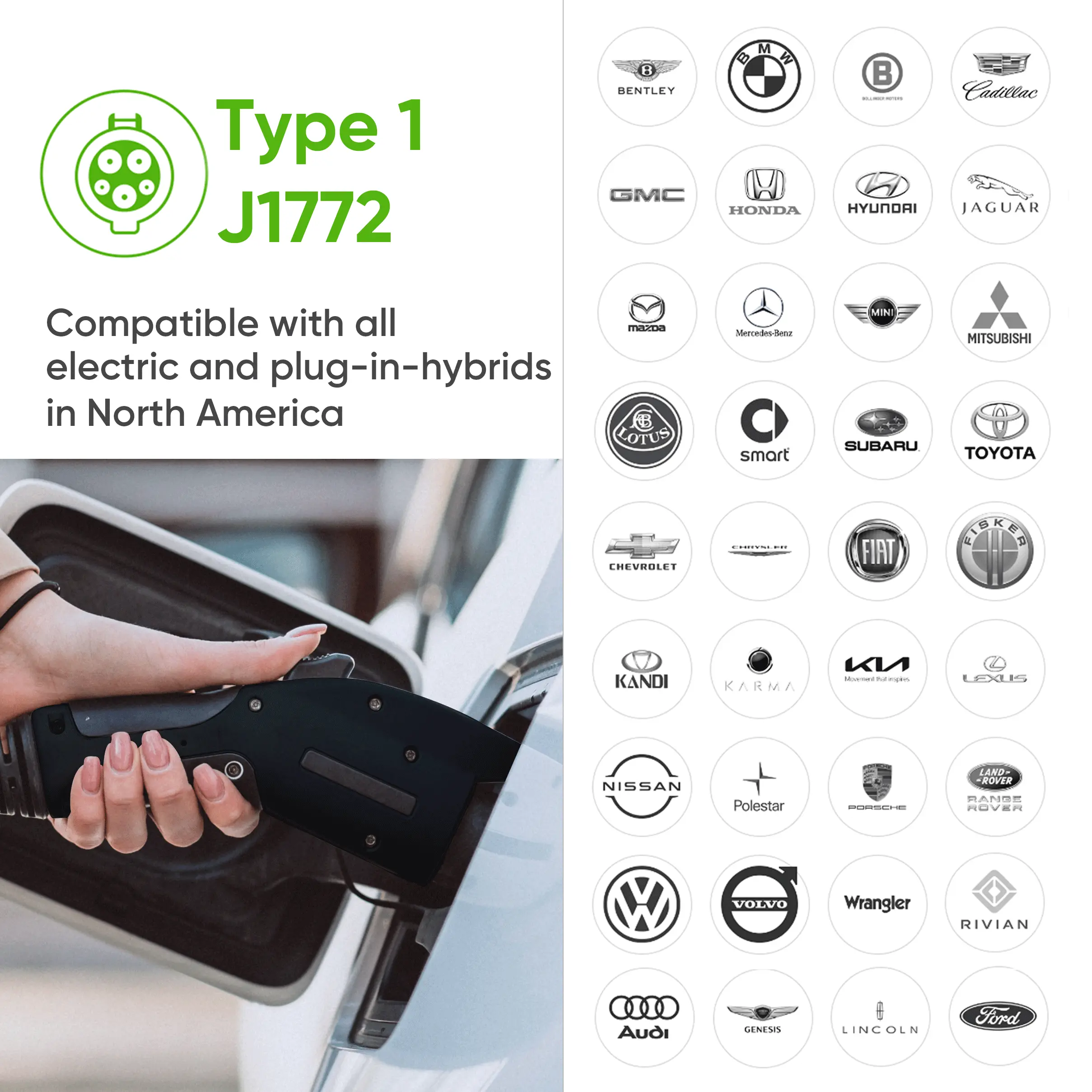
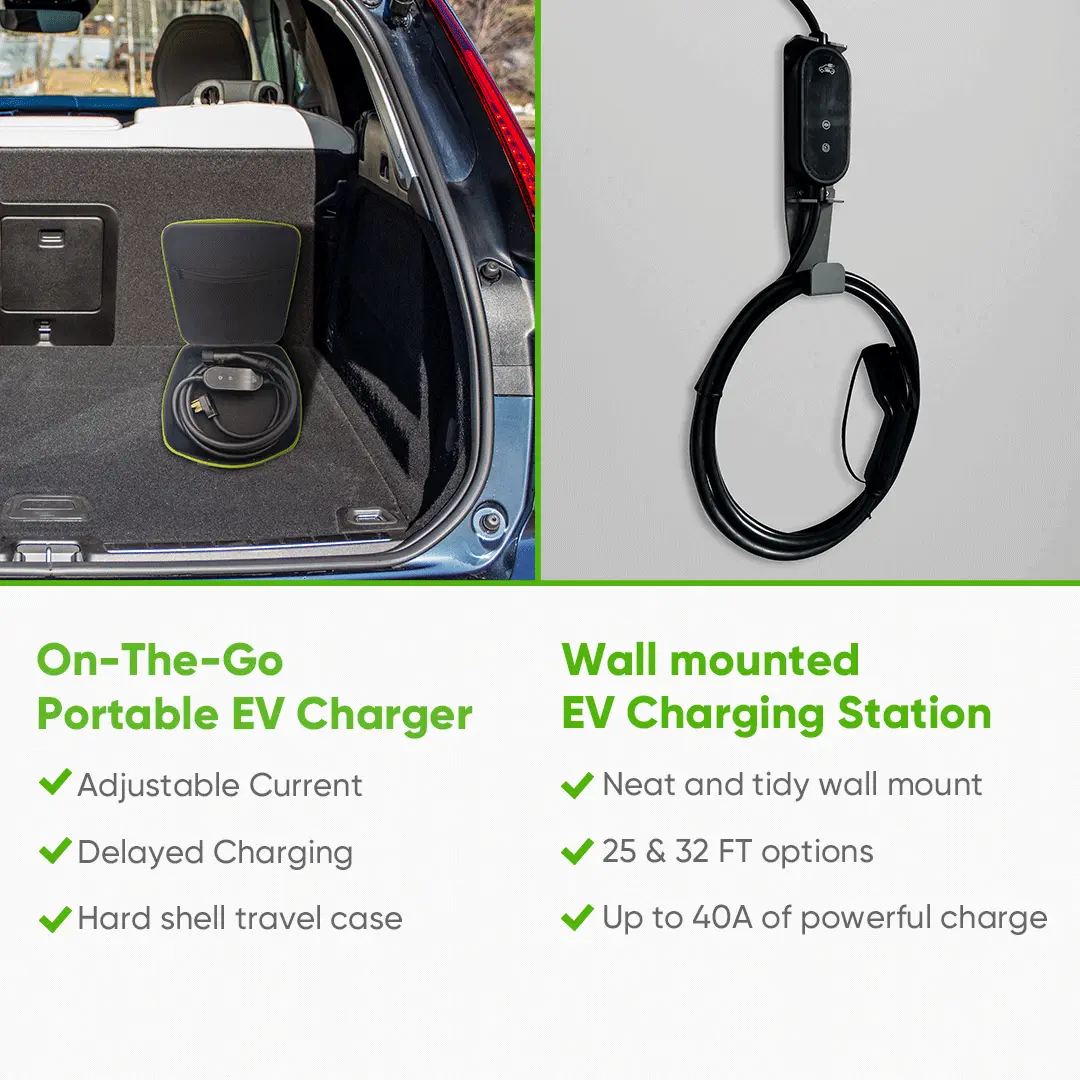
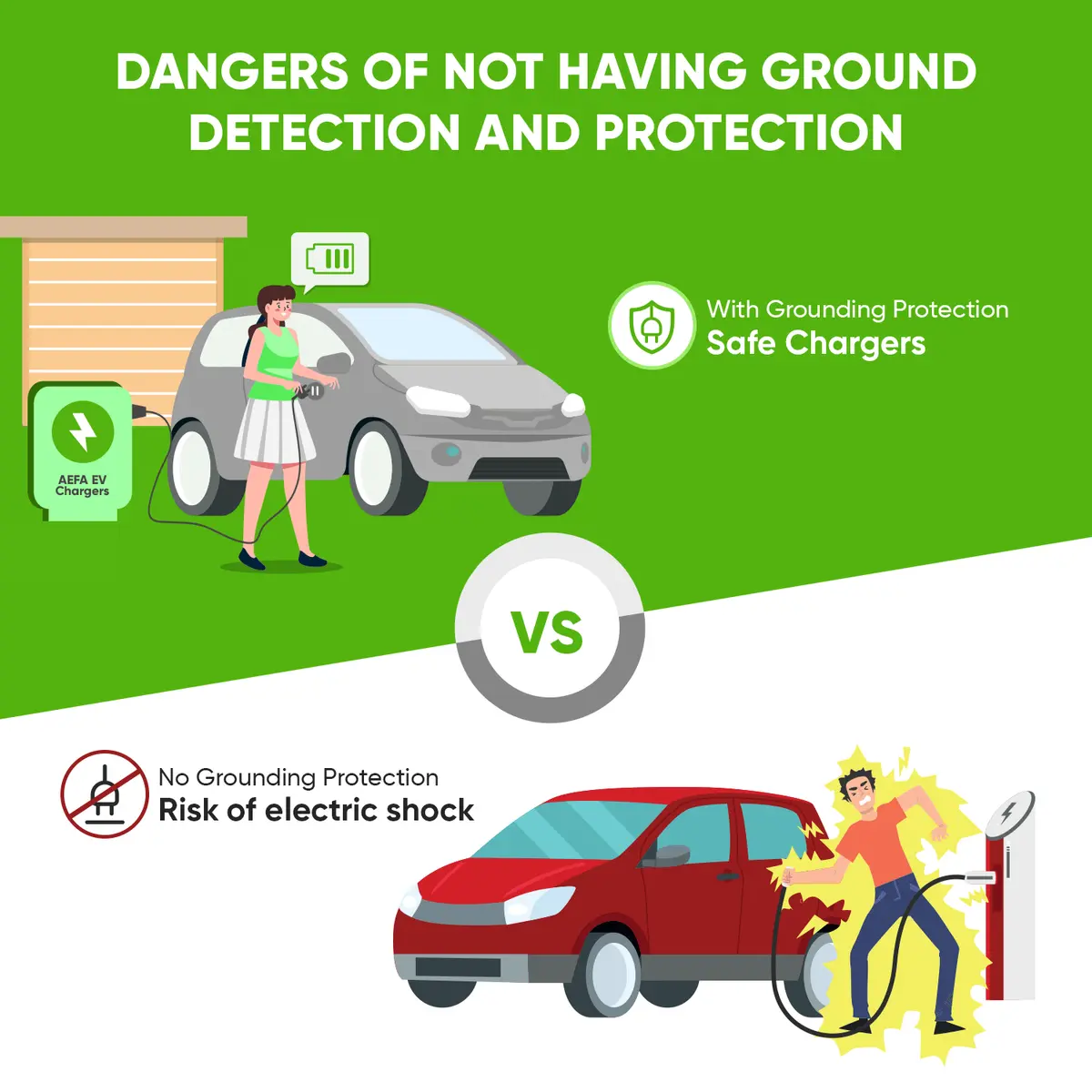
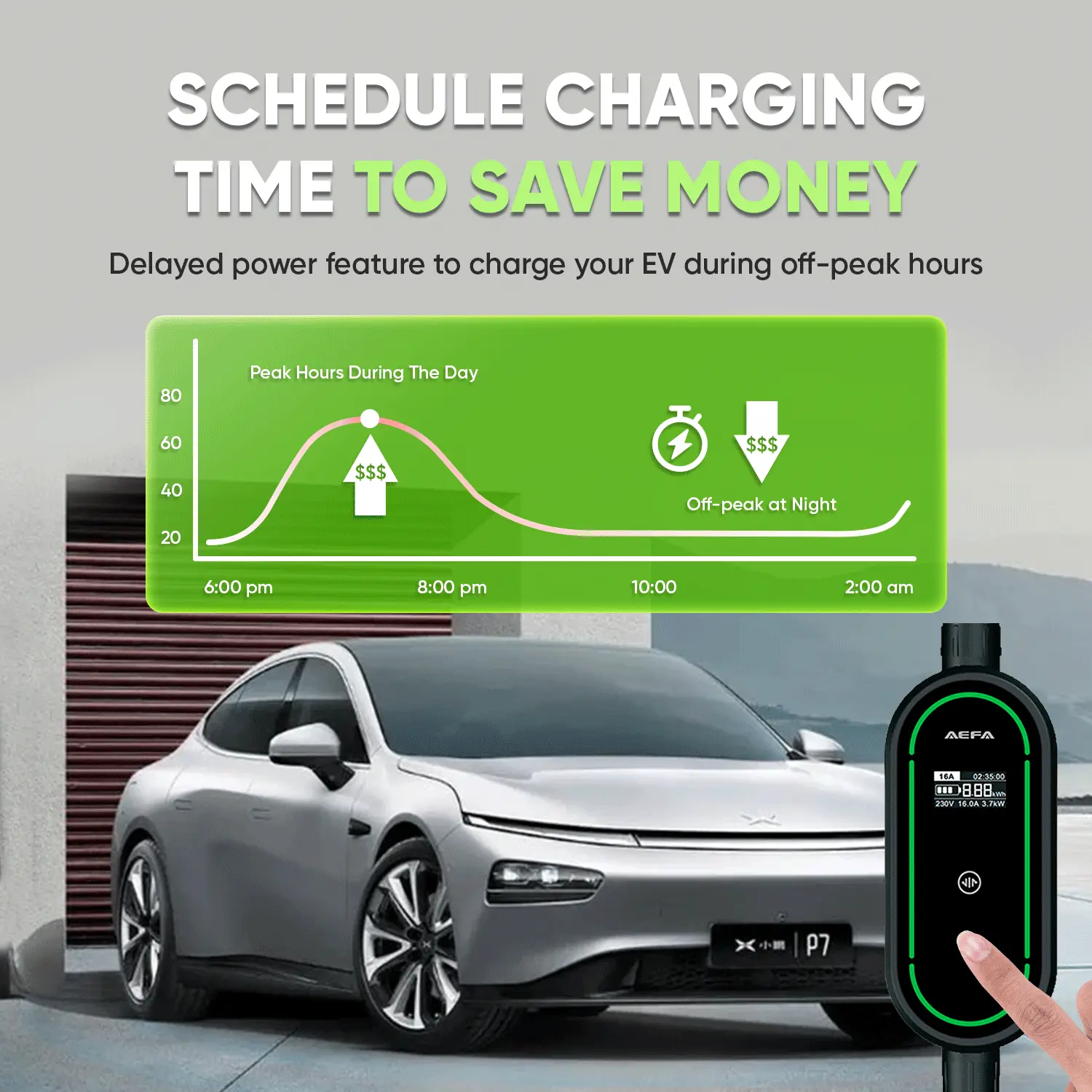
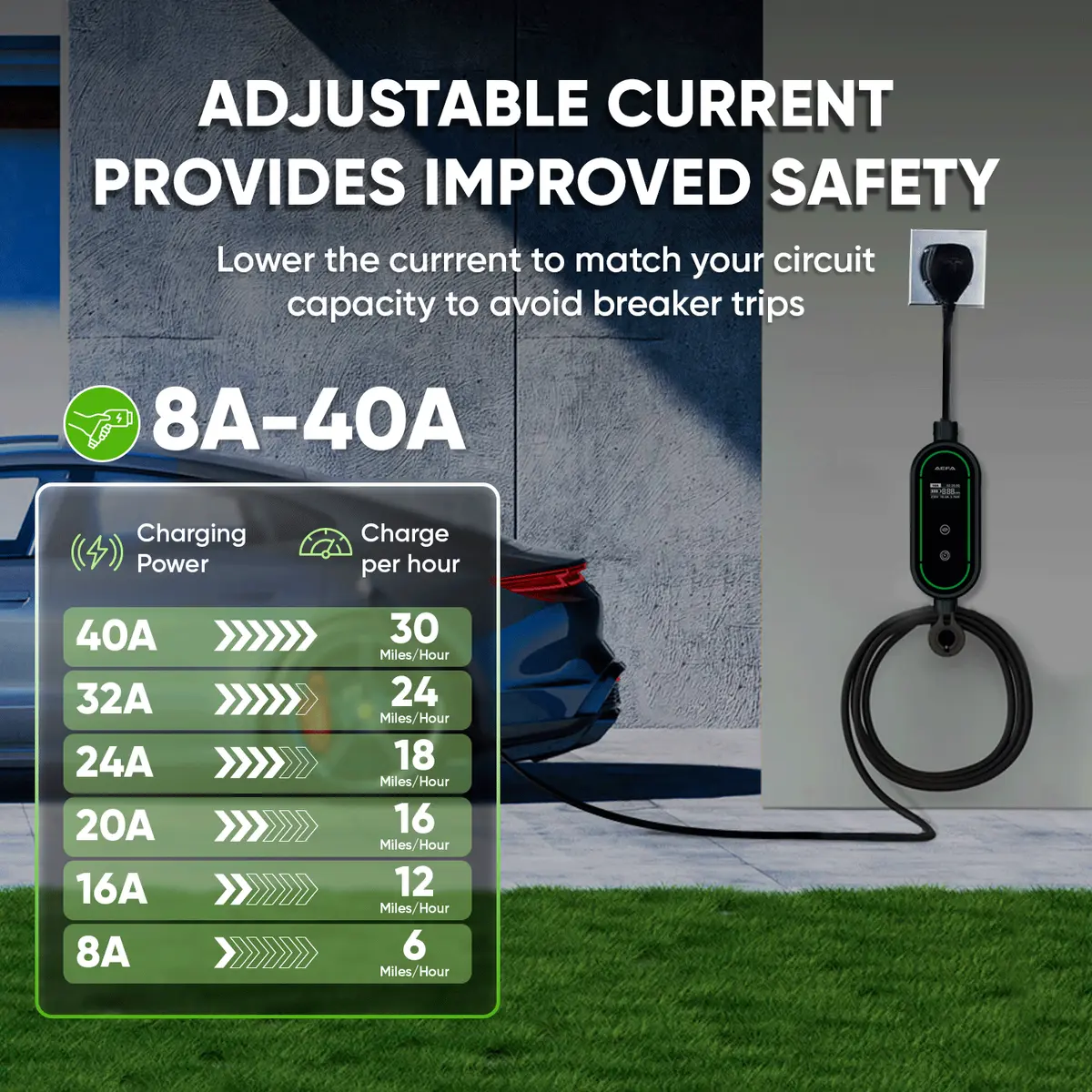
Starting at $120
This product is out of stock.
Order in the next hrs mins for delivery between 00 and 00!
Many customers seek fast or more mobile EV charging solutions for the Kia EV 9. Rental vehicles, lease vehicles, and similar scenarios mean a customer may have only a slow level 1 EV charger. Commercial charging credits often lead to disappointment with inconvenient locations, long lines, issues with usability, and higher costs, just to name a few. Level 1 provided EV chargers from manufacturers are too slow. Fixed, larger hardwire chargers can be more expensive to install and are unmovable, lacking flexibility.
Kia is focused heavily on expanding its EV platform, with the EV 6, EV 3 (coming soon) and the EV 9, the first all-electric, three row SUV on the market in the U.S. Given the number of Kia EV 9 chargers we sell and type of inquiries, we saw a common set of questions around level 2 EV chargers and Kia EV 9. We put them into one document for Kia EV 9 owners that have questions about EV charging and EVSEs in general.
The Kia EV 9 is a groundbreaking vehicle, providing comfort, three rows, enhanced technology features. The current Kia EV9, for residential EV charging, is charger at level 1 (power level) J1772 (connector type for connection to the charging port) or a level 2 J1722 EV charger. The charging rate i.e. how quickly power can be accepted by the car’s EV battery, is a rate of 11 kilowatts per hour (40-48 amps) on a 240-volt residential power outlet (typically NEMA 14-50 or NEMA 6-50). The charging rate i.e. how many miles of distance per hour of charging, is determined by two factors, which are the power of the charger and the acceptance rate (speed) of the car’s onboard battery. Different vehicles have different battery charging speeds and a car’s speed to charge cannot always be sped up by a faster EV charger given the charge limiting factors.
The 2024 Kia EV9 offers a range of charging options to suit your needs, whether you’re charging at home, on the go, or using public charging stations. Understanding the different charging options available can help you make the most of your electric vehicle (EV) experience.
For those new to the world of electric vehicles, the Kia EV9 provides three primary charging levels: Level 1, Level 2, and DC Fast Charging. Level 1 charging uses a standard household outlet and is best for overnight charging or when you have plenty of time. Level 2 charging, which requires a 240-volt outlet, is significantly faster and ideal for daily use at home or work. For the quickest charge, DC Fast Charging stations can rapidly replenish your vehicle’s battery, making them perfect for long trips or when you need a quick top-up.
By offering these versatile charging options, the Kia EV9 ensures that you have the flexibility and convenience to keep your vehicle powered up, no matter where you are.
| Battery Size |
|---|
| 76.1 to 99.8 kWh |
| DC Commercial Charging compatibility |
|---|
| Yes |
| Average Cost per Charge |
|---|
| $20 (short range) $28 (long range) |
| Level 2 charging |
|---|
| Yes |
The table we created shows charge time assuming an empty battery to full for a Kia EV 9, based on the capacity of the vehicle’s battery. The below-tabulated example shows the times to charge from an empty battery for your Kia EV 9. We show different common residential plug types for Kia EV 9 charging at both level 1 and level 2 power rates.
| Plug Type |
|---|
| Level 1 – 5-15 (regular 3 pin) 120 volts |
| Level 2 – 14-30 (4 pin electric dryer type) 240 volts |
| Level – 14-50 (4 pin EV Plug) 240 volts |
| Battery Size (kWh) |
|---|
| 76.1 kWh |
| 76.1 kWh |
| 76.1 kWh |
| Cost per Charge |
|---|
| 1.5 KW/hour @ 12 amps |
| 5.5 KW/hour @ 24 amps |
| 9.6 KW/hour @ 40 amps |
| EV Charge Time |
|---|
| ~40 hours |
| ~13 hours |
| ~8 hours |
For battery longevity, the charge of the battery should be between 20% to 80%. Many EV car software apps allow the driver to set these battery charging parameters. Battery life can be expected to slow if the battery charge is allowed to go below or above these limits.
The current Kia EV9 can be charged with a Type 1 SAE J1772 charger connector at home, work, or at a public charging point. Electrify America provides compatible charging points for the Kia EV9. The maximum alternating current (AC) charge rate is 11 kW/hour, which is 48 amps 208-240 volts. The car’s onboard software decides charge and will only take the maximum charge it is rated for. You can plug a level 2 40 amp, 9.6 kWh EV charger into your Kia EV 9 and this is the recommended level 2 Kia EV 9 charger.


The Kia EV9 is equipped with ultra-fast charging capabilities, allowing you to charge your vehicle’s battery quickly and efficiently. With a 350kW DC fast charger, you can charge your EV9 from 10% to 80% in just 24 minutes. This makes long-distance travel a breeze, as you can quickly top up your battery at public charging stations along the way.
The ultra-fast charging system is designed to provide a seamless and convenient charging experience. Whether you’re on a road trip or just need a quick boost, the Kia EV9’s ultra-fast charging ensures you spend less time waiting and more time driving. This advanced charging capability is a game-changer for electric vehicle owners, making it easier than ever to enjoy the benefits of electric driving without the hassle of long charging times.
Most EV owners prefer the convenience, comfort, and speed of home EV charging. Electrify America network offers a reliable and extensive network of charging stations, making it a great option for charging the Kia EV9 on the go. EV charging costs are generally much cheaper at home at residentially priced electricity compared to commercial charging rates from third-party sellers of EV charging. At least 50% cheaper, especially if charging during off-peak and super off-peak times. Generally, commercial EV charging is problematic due to connectivity issues, compatibility issues and broken EV chargers. Most EV owners we speak prefer to charge conveniently at home, but it also be plugged in when at level 2 EV charging stations or at places such as strip malls, car parks, and City-owned installations. Of most EV charger types, the 14-50 EV chargers can also be used in campgrounds and RV parks. 14-50 EV plug types are increasingly installed in new homes or by other EV owners.


There is a widespread cost in charging, depending on location (residential or commercial), time of day, State and electricity suppliers. It is worth checking with your local electricity supplier on EV tariffs. Kia America offers promotional charging plans in collaboration with Electrify America, which can help reduce these costs. The below table shows charging costs depending on location. The tables use U.S. current averages for residential electricity supply of 20 ¢/kWh. Below assumes 230-mile version Kia EV9.
| Place | |
|---|---|
| Home (empty to full)* | Commercial Chargers ** |
| Average Cost | |
|---|---|
| $15.20 | $38 |
| Cost/Mile | |
|---|---|
| $0.07¢ / mile | $0.17¢ / mile |
* Assumes 20 ¢/kWh average U.S. tariff. Residential tariffs vary by State.
** Assumes 50 ¢/kWh tariff for most Level 2 (AC) or Level 3 (DC) network EV chargers in 2024.
To ensure the longevity and health of your Kia EV9’s battery, it’s essential to follow proper charging and maintenance procedures. Here are some tips to help you get the most out of your battery:
By following these tips, you can help maintain the health and performance of your Kia EV9’s battery, ensuring a smooth and enjoyable driving experience. Proper maintenance not only extends the life of your battery but also enhances your overall ownership experience, making every drive in your Kia EV9 a pleasure.
If you don’t find the answer you need, feel free to contact us.
Yes, Kia EV 9 can be charged at level 2 and commercial DC charging stations
The fastest is a NEMA 14-50 level 2 EV charger or hardwired EV charger
It uses a type 1 J1772 EV charger
It would only work if you can accept 20-24 hour charge times
Yes, all EV chargers are interchangeable and compatible
The most popular is our NEMA 14-50 level 2 charger
Convenience, speed, flexibility
DC high voltage EV charging will provide faster charge times but is not available in residential locations
Our high power level 2 EV chargers will achieve a full EV charge in around 10 hours. Alternatively, we have a complete range of Kia EV 9 chargers with all different EV plug types.
Thanks for your interest! We’ll be notifying you once the product gets back in stock.